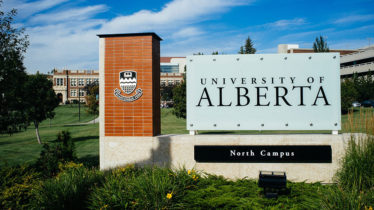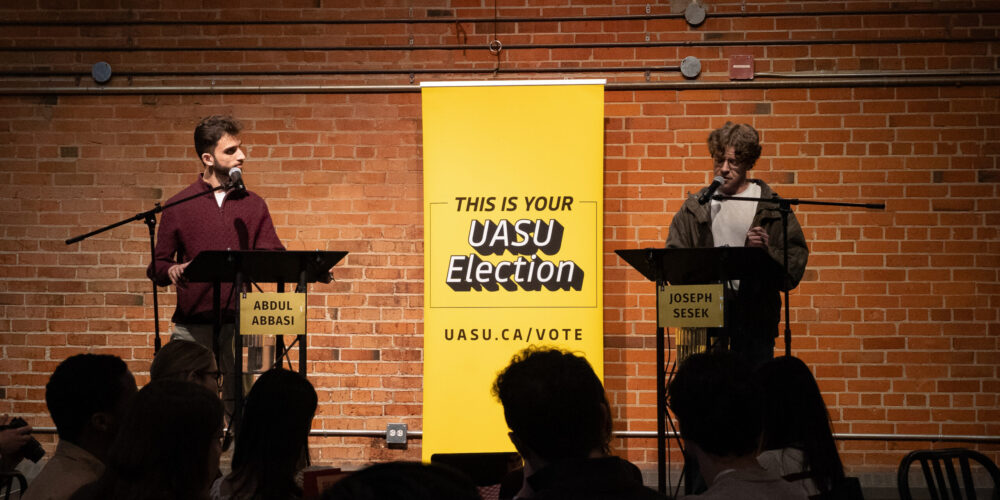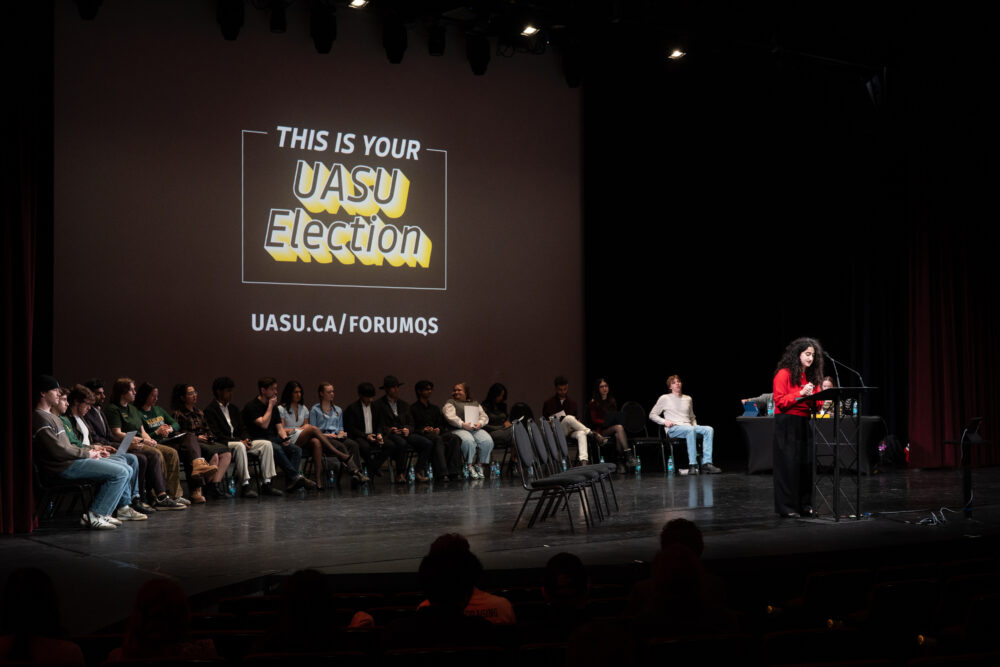U of A president says based on MacKinnon Report, changes will have to be made
"We know something is about to happen, we just don't know quite what," said U of A President David Turpin
 Abby Schenk
Abby SchenkThis article is the second in a three-part series on the MacKinnon Report, its potential impact at the University of Alberta and the post-secondary system in Alberta. Click here to read the first article in the series.
UPDATE: On October 1, President Turpin announced publicly tuition increases and cuts to the U of A will have to be made in balance with each other at the annual State of the University Address. The article now reflects this.
In discussions at university governance level meetings, administrators have already begun planning to take into account the potential effects the MacKinnon Report may have on the University of Alberta.
At the most recent General Faculties Council Executive meeting on September 9, U of A president David Turpin said the university does not know what to expect from the upcoming provincial budget based off the MacKinnon Report.
“Right now we are in this awkward situation,” Turpin said. “We know something is about to happen, we just don’t quite know what.”
Former Saskatchewan finance minister Janice MacKinnon, at the behest of premier Jason Kenney, examined Alberta’s finances and proposed a number of recommendations to fix what the report labelled as a “spending problem.” Known as the MacKinnon Report, it proposed three major recommendations to advanced education and listed some concerns it found in the post-secondary system.
Turpin said at the General Faculties Council meeting on September 23 that while the report lists many recommendations, none of them are surprising coming from the current government.
“I don’t think there are any people in this room that are surprised by the types of recommendations,” Turpin said. “What is left to be surprising… is how will this all unfold.”
The office of the president declined several interview requests from The Gateway.
Contingencies at the ready, says U of A president
Turpin said that the university has “contingencies” ready. According to him, the university is already exploring how to make administrative “improvements” and options on how to deal with the amount of physical space the university has.
“We are probably going to have less space [on campus],” he said. “Some of that space that we have we don’t need. We are not getting enough money to maintain it; its space that’s old and it would be better to knock it down and retrofit other space.”
Turpin said the university “can expect” less funding per student from government. He publicly announced tuition increases and cuts to the overall institution for the first time on October 1 at the State of the University Address. Turpin said a balance between cuts and tuition increases will have to be struck.
Back at GFC, Turpin has mentioned tuition increases will be the one consideration that will “occupy” the most conversations and decision-making throughout the university and governance process.
The university president said that with any tuition increase, there “must be” additional financial assistance for students.
“I have been very clear with all of my conversations with government,” Turpin said. “If you move to deregulate tuition, and tuition goes up, how do we — both as a province and as an institution — respond to that.”
He added that the U of A is expecting increased enrollment in the next five years due to a “wave” of students entering and completing high school and higher international student demand.
“Enrollment demand is the oxygen for institutions like us,” Turpin said. “If we were in a situation where demand was dropping, we would be in big trouble.”
Turpin said that the U of A has already begun adjusting its own internal budgeting mechanisms through a new university-level budget model to ensure faculties are ready to face fiscal changes.
Turpin wants stakeholders to “be at the table”
One of the recommendations from the MacKinnon Report is that there is a lack of overall vision for the post-secondary system. Turpin said he agrees with this, and hopes the university will be part of discussions to address this concern.
“There is not a single [university] president who believes there is a vision out there,” Turpin said. “The question will be, how will that unfold.”
“One of the messages we are already communicating to government is we like very much that this involves stakeholders,” he added. “We very much want to be at the table… This is something we want to do together, it’s something we don’t want to have done to us.”
Lack of clarity surrounding budget puts university in “difficult situation”
In a presentation about the MacKinnon Report and the university’s budget update, Turpin said the U of A is trying its best to navigate without having a budget letter from the province. A budget letter is a document sent to administrators at universities which outlines what level of funding or support they can expect from government.
The provincial budget will be released on October 24, after the federal election on October 21.
According to Turpin, the ministry of advanced education has said the university will receive a budget letter within a couple of weeks of the budget announcement. He added this puts the university in a “difficult situation” as they could receive the budget letter eight to nine months into the fiscal year.
Report launches greater conversation about university salaries
Turpin mentioned how despite the MacKinnon Report not recommending or mentioning anything about university salaries, a “greater conversation” about the topic emerged.
He said that there may be controls for salaries put in place for both academic and non-academic staff. As of now, Turpin said he is “unsure” if government will take any action in this area but conversations are ongoing.
“How government, if they do something, may well have a marked effect on the way in which we manage ourselves at the University of Alberta,” he said.
U of A has “an awful lot to learn” regarding potential impact of the MacKinnon Report
Overall, Turpin said the university still has a lot of planning and conversations to complete with government and internal stakeholders regarding the impact the MacKinnon Report could have on the institution.
“We still have an awful lot to learn in the coming months and years,” he said.
“I wish I knew what was going to happen,” Turpin said. “We do know…[is that] the government has the MacKinnon Report… which is [their] report on ‘how do we cut to balance the budget.’”




